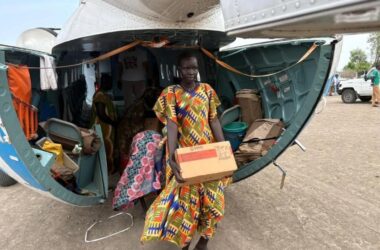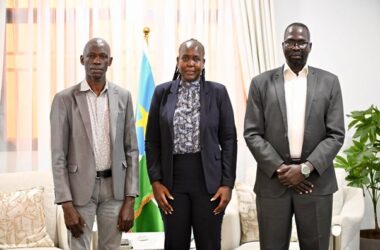By Lodu William Odiya
The World Health Organization (WHO) has called for a renewed collective commitment to Improve emergency preparedness on cholera outbreak in the country.
In Op-Ed issued by Dr. Humphrey Karamagi, WHO Representative for South Sudan has been combating its largest and longest cholera outbreak since independence in 2011.
“As we South Sudan moves towards the end of the current Cholera outbreak, WHO calls for a renewed collective commitment to improve emergency preparedness by conducting simulations and drills” the statement read.
Karamagi underscored the need to monitor implementation status of all hazards specific preparedness/response plans and including the establishment of a repository of tools, reports and lessons learnt for each and every Cholera outbreak.
He said the outbreak, which began in September 2024 has been sustained for now one year, testing the country’s experiences, defining new frontiers to interrupt transmission and providing new lessons for future similar outbreaks.
“The weekly number of new Cholera cases has drastically reduced from an average of 1000 cases at the peak of the outbreak in December 2024 to a record lowest of 114 in the last week of September 2025” he stated.
Karamagi emphasized that after 12 months of sustained Cholera transmission, the outbreak is slowing but has caused nearly 100 000 suspected cases and slightly over 1500 deaths across 55 counties in 9 States and 3 Administrative Areas.
“The country’s multi-sectoral response featuring surveillance, deployment of rapid response teams, medical supply prepositioning, case management, Infection Prevention and Control, Water/Sanitation/Hygiene promotion, reactive vaccination campaigns using oral cholera vaccines, and response coordination has helped mitigate the risks to communities and saved hundreds of lives” he stressed.
He added that the number of infected Counties declined from 55 to 7 in the same reporting period. And there was no newly infected county since June 2025.
Furthermore, he underlined that the response efforts had focused on coordination of response actors using the Incident Management System, strengthening surveillance for acute watery diarrhea (AWD), and also Laboratory diagnostics support for aetiological agents of AWD,
Additionally, he stated that the efforts had also focused on case management of acute watery diarrhea, especially severe dehydration, Risk communication and community engagement, Infection Prevention and Control, Water/Sanitation/Hygiene promotion, and vaccination using Oral Cholera Vaccines.
“This cholera response serves as a foundation to enhance future emergency preparedness and health system strengthening in South Sudan. Key lessons learnt include multi-hazard preparedness plans guided pre-positioning of supplies and improved effectiveness of the outbreak response in newly affected geographies” he explained.
On October 28, 2024, the South Sudan Ministry of Health declared a cholera outbreak in Renk, Upper Nile State.
The outbreak which was driven by several converging factors including cross-border transmission from Sudan, limited access to WASH services, flooding, and population displacement.




